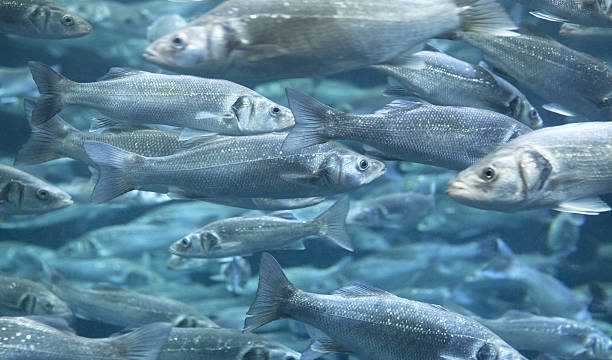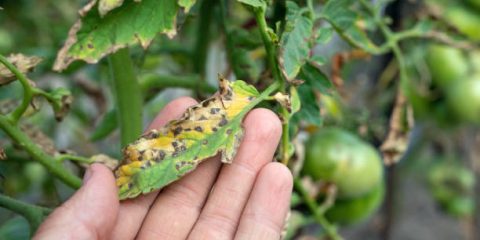
Fisheries and aquaculture play a vital role in global food security, employment, and economic growth. With the world’s population growing and pressure on natural resources increasing, research in this field is more important than ever. The sector not only provides protein to billions of people but also drives rural development and supports livelihoods in many developing and developed countries.
Today, aquaculture is one of the fastest-growing food production industries, and sustainable fisheries management has become a priority for governments and international organizations. Students, scholars, and researchers interested in fisheries and aquaculture have countless opportunities to explore important areas ranging from environmental sustainability and fish genetics to disease management, policy, and value chain development.
This blog post provides a comprehensive list of classified research topics related to fisheries and aquaculture, along with explanations and insights to guide your selection.
Fisheries Resource Management
- Sustainable management of wild fish populations
- Impact of overfishing on marine biodiversity
- Stock assessment techniques for coastal and inland fisheries
- Climate change effects on fish population dynamics
- Role of Marine Protected Areas (MPAs) in fisheries conservation
- Policy approaches for combating illegal, unreported, and unregulated (IUU) fishing
Aquaculture Production Systems
- Comparative analysis of intensive, semi-intensive, and extensive aquaculture systems
- Integrated multi-trophic aquaculture (IMTA) for sustainable production
- Cage culture and its environmental implications
- Innovations in recirculating aquaculture systems (RAS)
- Aquaponics as a sustainable method of fish and crop production
- Land-based versus sea-based aquaculture: environmental and economic trade-offs
Fish Genetics and Breeding
- Selective breeding for fast growth and disease resistance in aquaculture species
- Application of molecular markers in fish breeding programs
- Genetic diversity and conservation of endangered fish species
- Hybridization as a tool for improving aquaculture productivity
- Genome editing (CRISPR-Cas9) in fisheries and aquaculture
- Ethical issues in genetically modified fish production
Fish Nutrition and Feeding
- Development of cost-effective and sustainable fish feed formulations
- Alternative protein sources in aquafeed, such as insect meal and algae
- Role of probiotics and prebiotics in fish diets
- Nutritional requirements of carnivorous versus herbivorous fish species
- Impact of feed additives on fish growth and immunity
- Precision feeding technologies to reduce waste in aquaculture
Fish Health and Disease Management
- Epidemiology of bacterial and viral diseases in aquaculture
- Development of vaccines for major aquaculture pathogens
- Role of water quality in preventing disease outbreaks
- Use of herbal and natural remedies in fish health management
- Antimicrobial resistance in aquaculture systems
- Early diagnostic tools for fish disease detection
Environmental Sustainability in Fisheries and Aquaculture
- Impact of aquaculture effluents on water ecosystems
- Strategies for reducing the carbon footprint of aquaculture
- Ecosystem-based fisheries management approaches
- Role of fisheries in maintaining aquatic biodiversity
- Climate-smart aquaculture practices for developing countries
- Ocean acidification and its effect on fish growth and survival
Post-Harvest Technology and Value Addition
- Innovations in fish preservation and storage techniques
- Fish product value chains and market development
- Role of cold chain logistics in reducing post-harvest losses
- Development of ready-to-eat fish-based food products
- Quality assurance and safety standards in fisheries products
- Consumer preferences and demand for aquaculture versus wild-caught fish
Socioeconomic and Policy Research in Fisheries
- The role of fisheries in poverty alleviation and rural development
- Gender roles and empowerment in fisheries and aquaculture value chains
- International trade policies affecting fisheries and aquaculture
- Impact of subsidies and regulations on small-scale fisheries
- Governance challenges in managing transboundary fish stocks
- Fisheries cooperatives and community-based management systems
Importance of Fisheries and Aquaculture Research
Fisheries and aquaculture research provides solutions to some of the world’s biggest challenges: ensuring food security, combating malnutrition, creating employment, and conserving aquatic ecosystems. With overfishing, climate change, and environmental pollution threatening aquatic resources, scientific research helps design sustainable strategies to balance human needs with ecological preservation.
FAQs on Research Topics Related to Fisheries and Aquaculture
1. Why is research in fisheries and aquaculture important?
Research is essential for sustainable fish production, disease management, food security, and conservation of aquatic biodiversity.
2. What are the trending research topics in fisheries and aquaculture?
Popular topics include sustainable aquaculture systems, climate change impacts on fisheries, fish genetics, feed innovations, and disease control.
3. How does aquaculture differ from fisheries in research focus?
Fisheries research focuses on wild fish populations, ecosystems, and management, while aquaculture research emphasizes farmed fish production, nutrition, and health.
4. What are the major challenges in fisheries and aquaculture?
Challenges include overfishing, environmental pollution, disease outbreaks, antimicrobial resistance, and climate change impacts.
5. Which areas of fisheries and aquaculture research have direct global impact?
Areas such as climate-smart aquaculture, fish disease management, genetic improvement, and post-harvest technologies have immediate and wide-reaching benefits.
Final Thoughts
Fisheries and aquaculture research is a dynamic and impactful field that touches on food security, livelihoods, sustainability, and environmental protection. By selecting research topics in areas like fish genetics, sustainable aquaculture systems, disease management, or post-harvest technologies, scholars can contribute to solving global challenges. With careful selection and a problem-solving approach, your research can benefit not only science but also society and the environment.
ALSO READ: Research Topics Related to Animal Science









1 thought on “Research Topics Related to Fisheries and Aquaculture”